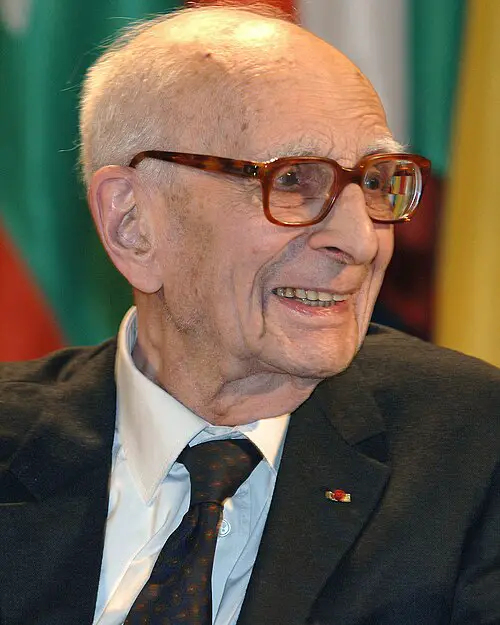Claude Lévi-Strauss
(1908 - 2009)

Claude Lévi-Strauss was born to French-Jewish parents on November 28, 1908, in Brussels, Belgium. Raymond’s father was a portrait painter, and the family traced its roots to Alsace. During World War I, Lévi-Strauss lived with his maternal grandfather, the rabbi of the Versailles synagogue. This experience later shaped his identity as an insider and an outsider to French and Jewish life. He studied philosophy at the Sorbonne, ranking third in the agrégation of 1931, and initially planned a career in law and philosophy before turning to sociology and anthropology.
In 1935, Lévi-Strauss joined a French cultural mission to Brazil, serving as professor of sociology at the University of São Paulo. His expeditions to the Mato Grosso and Amazon introduced him to the Nambikwara and Bororo peoples, whose kinship systems inspired his first major ethnographic work, La Vie familiale et sociale des Indiens Nambikwara (1948).
Due to his Jewish heritage, he fled Nazi-occupied France in 1941 and emigrated to the United States, where he joined the New School for Social Research in New York and met the linguist Roman Jakobson. Their collaboration profoundly influenced Lévi-Strauss’s development of structuralism, which applied linguistic models to social systems. He returned to France after World War II, becoming Director of Studies at the École Pratique des Hautes Études and later Chair of Social Anthropology at the Collège de France (1959–1982).
Lévi-Strauss’s Les Structures élémentaires de la parenté (1949) established him as a leading theorist in anthropology. He argued that kinship and marriage rules reveal universal patterns of exchange underlying human society. His structuralist approach extended to mythology in the four-volume Mythologiques (1964–1971), where he analyzed myths as expressions of binary oppositions in human thought.
His autobiographical travelogue Tristes Tropiques (1955) combined ethnography, philosophy, and literature. It presented his critique of Western civilization’s destructiveness and his longing for lost cultural diversity.
Lévi-Strauss’s influence transcended anthropology, shaping linguistics, literary theory, philosophy, and comparative religion. He was elected to the Académie française in 1973 and became its Dean in his centenary year. His honors included the Erasmus Prize (1973) and the Kyoto Prize (1986).
His perspective as an assimilated Jew who observed from the margins informed his lifelong theme of “the outsider looking in” — a vantage point that mirrored his method of analyzing societies from afar.
Claude Lévi-Strauss died in Paris on October 30, 2009, at 100. He is remembered as the “father of modern anthropology” and a moral voice who warned against modernity’s cultural and ecological costs. His intellectual legacy endures in the structuralist understanding that beneath human diversity lie shared mental structures — a testament to his lifelong quest for the unity of humankind.
James J. Fox, “Claude Lévi-Strauss,” Biographical Memoirs of Fellows of the British Academy, XVIII, (2019).
Emmanuelle Loyer et al., “Lévi-Strauss: A Biography,” SciencesPo, (2019).
“Claude Lévi-Strauss,” Famous Scientists.
“Claude Lévi-Strauss,” New World Encyclopedia.
“Claude Lévi-Strauss,” Encyclopaedia Britannica.
Photo: UNESCO/Michel Ravassard, CC BY 3.0, via Wikimedia Commons.


